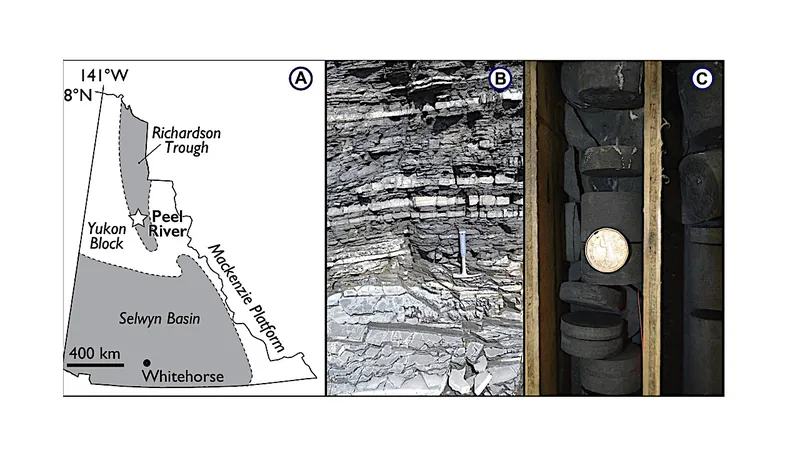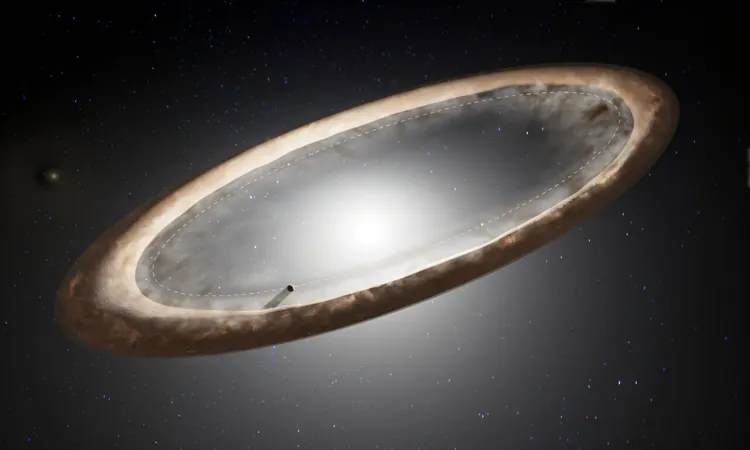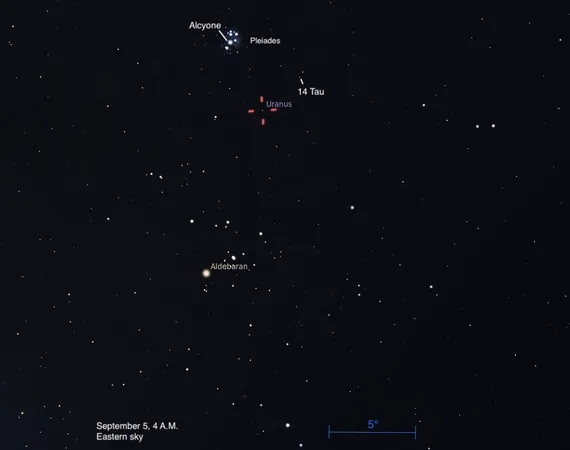
Unlocking the Secrets of Ancient Oceans: Dynamic Oxygenation in the Paleozoic Era
2025-09-04
Author: Wei Ling
The Paleozoic Revolution: A Breath of Fresh Air for Marine Life
The Early Paleozoic era marked a remarkable explosion of diverse animal life, often attributed to a well-ventilated global ocean. However, the true story of how oxygen levels varied in the deep oceans during this time has long been shrouded in mystery.
Unveiling the Past with Thallium Isotopes
In a groundbreaking study, researchers have utilized thallium (Tl) isotope ratios found in ancient deep-marine mudrocks to reconstruct the oxygenation history from approximately 485 to 380 million years ago. Tl isotopes are crucial because they provide insights into bottom water oxygenation by responding uniquely to the burial of manganese (Mn) oxides on the seafloor.
A Global Perspective: The Road River Group
Examining a global collection of mudrock samples, with a focused analysis on the Road River Group in Yukon, Canada, researchers have unveiled an intriguing oscillation in the Tl isotope ratios—indicative of a dynamic history of ocean ventilation. A standout discovery reveals a significant period of deep ocean oxygenation that occurred between 405 and 386 million years ago.
Long-Term Trends: The Rise of Sustained Oxygen Levels
These findings highlight short-term fluctuations superimposed on a broader, steady increase in oceanic oxygen levels throughout the Early and Middle Paleozoic. Remarkably, the study suggests that a sustained accumulation of oxygen in marine bottom waters began to take place after around 380 million years ago.
A Closer Look at Earth's Early Oceans
The revelations from this research not only shed light on the complex dynamics of our planet's ancient oceans but also enhance our understanding of the factors that contributed to the proliferation of early marine life. With the secrets of deep marine oxygenation now partially unveiled, scientists are better equipped to unravel the complexities of Earth's environmental history, paving the way for future explorations into how life adapts to changing conditions.




 Brasil (PT)
Brasil (PT)
 Canada (EN)
Canada (EN)
 Chile (ES)
Chile (ES)
 Česko (CS)
Česko (CS)
 대한민국 (KO)
대한민국 (KO)
 España (ES)
España (ES)
 France (FR)
France (FR)
 Hong Kong (EN)
Hong Kong (EN)
 Italia (IT)
Italia (IT)
 日本 (JA)
日本 (JA)
 Magyarország (HU)
Magyarország (HU)
 Norge (NO)
Norge (NO)
 Polska (PL)
Polska (PL)
 Schweiz (DE)
Schweiz (DE)
 Singapore (EN)
Singapore (EN)
 Sverige (SV)
Sverige (SV)
 Suomi (FI)
Suomi (FI)
 Türkiye (TR)
Türkiye (TR)
 الإمارات العربية المتحدة (AR)
الإمارات العربية المتحدة (AR)